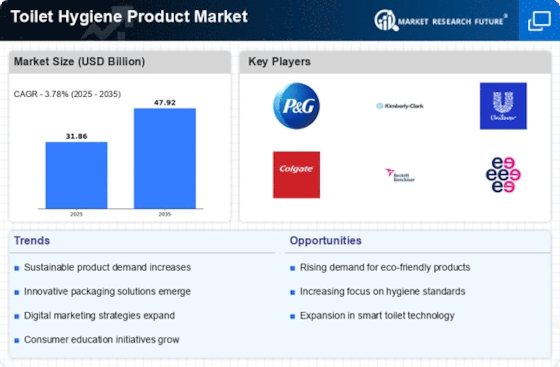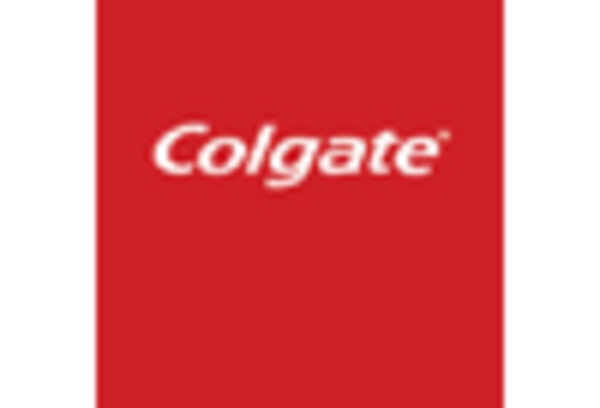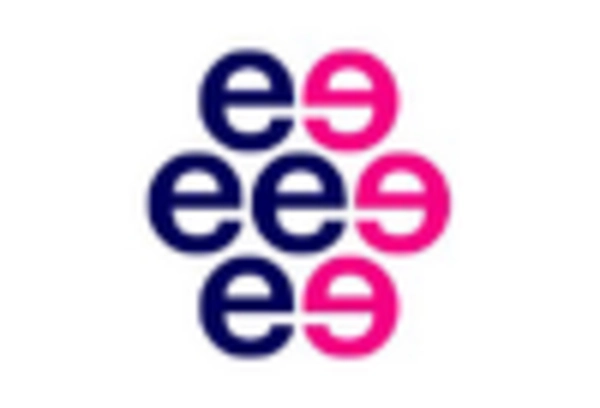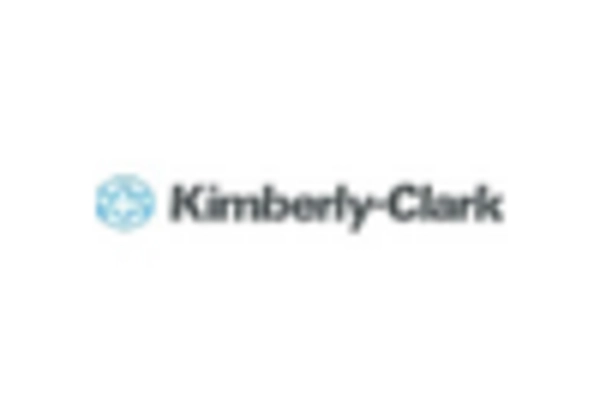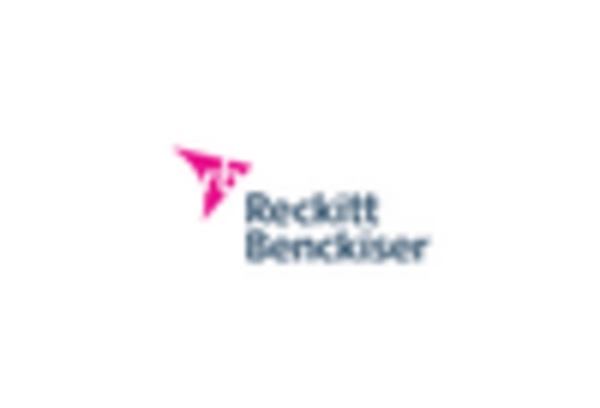E-commerce Growth
The rapid expansion of e-commerce platforms is transforming the Toilet Hygiene Product Market. Consumers are increasingly turning to online shopping for convenience and accessibility, leading to a surge in online sales of toilet hygiene products. This trend is supported by data indicating that e-commerce sales in the hygiene sector have grown by over 25% in the past year. The ability to compare products, read reviews, and access a wider range of options online is appealing to consumers. As e-commerce continues to thrive, it is expected to play a pivotal role in shaping the purchasing behavior of consumers in the Toilet Hygiene Product Market.
Rising Disposable Income
The increase in disposable income among consumers is another significant driver for the Toilet Hygiene Product Market. As individuals experience improved financial conditions, they are more inclined to purchase premium hygiene products. This trend is particularly evident in emerging markets, where a growing middle class is seeking higher-quality toilet hygiene solutions. The market data indicates that regions with rising disposable incomes are witnessing a shift towards more sophisticated and effective hygiene products. Consequently, this trend is likely to enhance the overall market landscape, as consumers prioritize quality and efficacy in their purchasing decisions.
Health and Wellness Trends
The ongoing emphasis on health and wellness is influencing consumer behavior in the Toilet Hygiene Product Market. As individuals become more health-conscious, they are increasingly seeking products that promote cleanliness and reduce the risk of infections. This trend is evident in the rising popularity of antibacterial toilet cleaners and sanitizing wipes. Market Research Future suggests that the health and wellness segment is expected to grow significantly, with consumers prioritizing hygiene as a critical aspect of their overall well-being. This shift in consumer mindset is likely to drive demand for innovative toilet hygiene products that align with health-focused lifestyles.
Innovative Product Offerings
Innovation plays a crucial role in shaping the Toilet Hygiene Product Market. Manufacturers are continuously developing new and improved products that cater to evolving consumer preferences. For instance, the introduction of eco-friendly toilet cleaning solutions and advanced toilet paper options has garnered significant attention. The market has seen a surge in demand for products that not only clean but also provide additional benefits, such as odor control and antibacterial properties. This innovation is expected to drive market growth, with estimates suggesting that the segment for innovative toilet hygiene products could account for over 30% of total market revenue by 2026.
Increased Awareness of Hygiene
The rising awareness of personal hygiene is a pivotal driver for the Toilet Hygiene Product Market. Consumers are increasingly recognizing the importance of maintaining cleanliness in personal spaces, particularly in restrooms. This heightened awareness is reflected in the growing demand for products such as toilet seat sanitizers, disinfectant wipes, and toilet bowl cleaners. According to recent data, the market for toilet hygiene products is projected to grow at a compound annual growth rate of approximately 5.5% over the next five years. This trend indicates that consumers are willing to invest in products that enhance their hygiene practices, thereby propelling the Toilet Hygiene Product Market forward.


